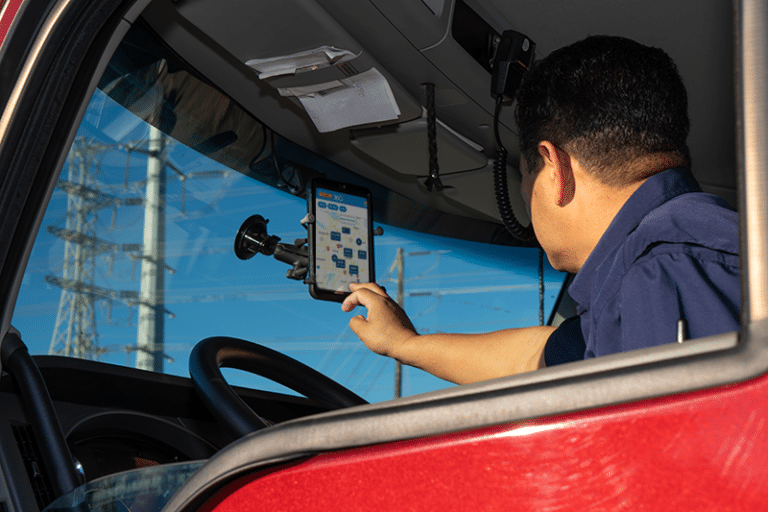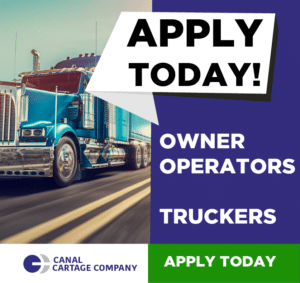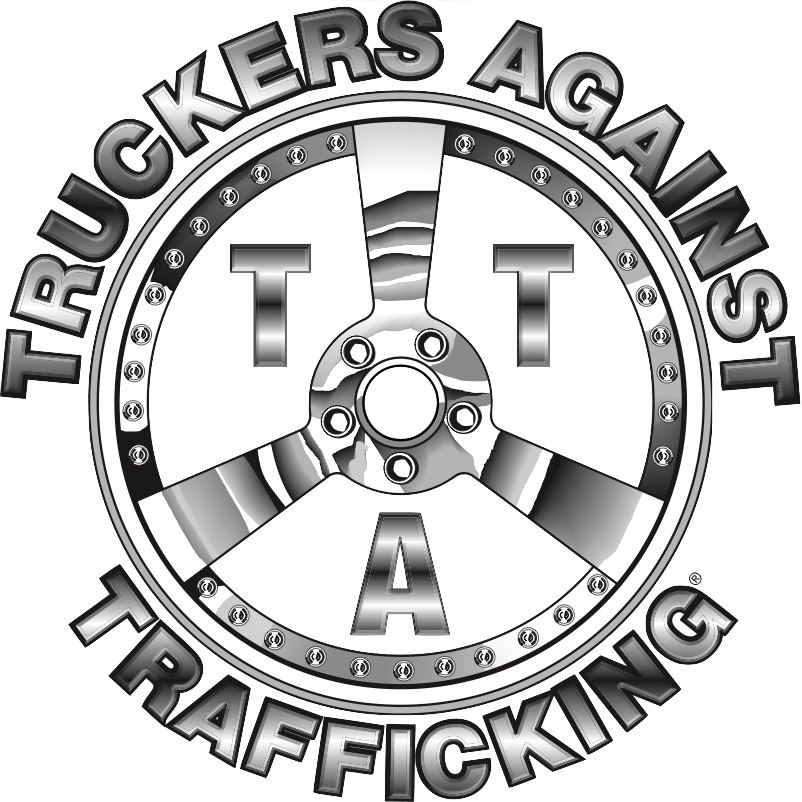In the age of emerging technologies, it’s no secret that the trucking industry is experiencing major transformations.
Transportation plays a crucial role in the economy, fueling growth, and innovation, and the trucking industry is no exception.
But with rising fuel costs, increasing government regulations, and shortages of qualified drivers, the industry has been facing some significant challenges. However, emerging technologies are paving the way for a better future.
The future of trucking is full of possibilities, thanks to advancements in technology. From electric and autonomous trucks to blockchain logistics and IoT solutions, these emerging technologies are set to revolutionize the industry in ways we never thought possible.
Let’s take a closer look at how these technologies are shaping the future of trucking.
The Current State of the Trucking Industry
The current state of the trucking industry can be described as both challenging and dynamic. The COVID-19 pandemic has impacted the industry in multiple ways, including supply chain disruptions, changing consumer behavior, and a surge in demand for certain goods.
The industry is facing ongoing challenges such as driver shortages, safety regulations, and increasing competition from other modes of transportation.
However, the industry is also becoming more technologically advanced, with innovations in areas such as autonomous trucks and real-time tracking.
As the world continues to evolve, so too will the trucking industry.
New Technologies and Innovative Practices in the Trucking Industry
The trucking industry has always been an important part of the global economy, transporting goods from one place to another. But for decades, it has also been a slower adopter of new technologies and innovative practices.
However, this is changing as the industry now faces increased pressures from competition, regulations, and the need for improved efficiency.
Let’s explore how new technologies and innovative practices are transforming the trucking industry.
- Electric Trucks
Electric trucks have a lower carbon footprint than traditional diesel trucks, and they’re more energy-efficient, reducing fuel costs.
Notable examples of electric trucks include Tesla’s electric semi-truck, which boasts a range of up to 600 miles on a single charge.
Beyond Tesla, more companies are following suit with the electrification of their fleet. The global delivery giant UPS is one such company championing this shift.
They’ve been investing in electric vans and trucks from Arrival, a UK-based electric vehicle manufacturer.
This move underscores UPS’s commitment to reducing its carbon footprint and aligning its operations with sustainable practices.
Moreover, it indicates a growing trend of companies recognizing the financial and environmental benefits of electric vehicles, and integrating them into their operations.
Electric trucks, as a recent development in the transport industry, represent a significant stride toward environmental sustainability. They have a lower carbon footprint compared to their traditional diesel counterparts.
This is largely attributed to their zero-emission feature, contributing significantly less to air pollution and thus aiding in the mitigation of global warming and climate change effects.
Moreover, electric trucks are more energy-efficient, translating to substantial reductions in fuel costs.
Unlike diesel trucks, which burn fuel to generate propulsion power, electric trucks utilize electric motors powered by rechargeable batteries.
As such, the cost of charging these batteries is considerably less than the equivalent cost of diesel fuel, presenting a tangible financial advantage for fleet operators.
As these innovative technologies continue to advance and as the infrastructure to support electric vehicles expands, we can anticipate a significant increase in the adoption of electric trucks across industries.
This shift not only exemplifies an economically strategic move but also signifies a commitment toward a more sustainable and environmentally conscious
More companies are following suit with electric trucks as they become available, such as the delivery company UPS with their purchase of electric vans and trucks from Arrival.
- Autonomous Trucks
Autonomous trucks, characterized by their ability to operate independently of human control, hold immense promise for transforming the trucking industry in substantial ways.
By leveraging sophisticated technologies such as sensors, advanced algorithms, artificial intelligence (AI), and machine learning, these trucks have the capability to navigate complex road systems and highway routes without requiring a human driver behind the wheel.
Autonomous trucks have the potential to revolutionize the trucking industry by increasing efficiency and reducing costs. These trucks use sensors and advanced algorithms to navigate the roads and highways without the need for a human driver.
While autonomous trucks are not yet widely adopted, many companies are investing in developing this technology.
For example, prominent brands such as Daimler, Volvo, and Uber are actively working on autonomous trucking technology.
The first and foremost advantage these vehicles provide is a significant boost in efficiency. The constraints of human limitations, such as fatigue, distractions, and mandatory rest periods, are bypassed with autonomous technology, enabling these vehicles to operate around the clock.
This potential for non-stop productivity could drastically reduce delivery times and improve logistics operations, allowing for an even flow of goods and services.
In addition to increased efficiency, autonomous trucks also present opportunities for considerable cost reduction.
By minimizing the risk of human error, which often leads to accidents and subsequent repair and insurance costs, the industry can anticipate significant savings.
Furthermore, the elimination of driver-associated expenses, including wages, benefits, and training, can also contribute to overall cost reductions.
Yet, the widespread adoption of autonomous trucks remains in its nascent stages, with numerous hurdles, such as regulatory challenges, public safety concerns, and technological issues, yet to be overcome.
However, despite these obstacles, an array of forward-thinking companies recognize the potential benefits of this technology and are investing heavily in its development.
Prominent brands, such as Daimler, Volvo, and Uber, are at the forefront of this technological revolution, proactively contributing to advancements in the autonomous trucking sector.
Daimler, for instance, is pouring resources into the development of the autonomous Freightliner Cascadia truck, demonstrating a commitment to harnessing AI for road transportation.
Volvo, on the other hand, is focusing on creating autonomous solutions for specific sectors like mining, port logistics, and public transportation.
Uber, despite stepping back from its self-driving trucks project, remains invested in autonomous technology through its Advanced Technologies Group, a clear indication that the potential of autonomous trucking is being recognized and harnessed across diverse industry sectors.
- Internet of Things (IoT) and Telematics
The IoT and telematics are two technologies that are revolutionizing the trucking industry.
IoT Technology
Internet of Things (IoT) sensors and devices can gather real-time traffic updates, weather conditions, and driving-style data in trucks, enhancing productivity and decreasing operating expenses.
Connected devices have the potential to transmit diverse data for supply chain management and optimization, particularly in over-the-road freight scenarios.
Data can include:
Precise Location Tracking
IoT devices can provide a solution to a common issue in the logistics industry by offering precise location tracking for freight.
This allows for more accurate updates to customers and the ability to reroute trucks when necessary, ultimately reducing the occurrence of late deliveries.
Freight Status
IoT devices provide valuable reassurance to customers regarding the proper handling of freight during transit.
These devices are capable of monitoring crucial factors such as temperature and humidity, particularly relevant for customers shipping agricultural products and high-end alcohol.
Available Cargo Space
Trucking companies are utilizing cargo sensors to detect available trailer space and optimize cargo movement, which can reduce driving miles by arranging pick-ups during a truck’s delivery route.
Preventative Maintenance
Some companies are using IoT devices on their trucks to prevent breakdowns. Volvo’s Remote Diagnostics system is a leader in this area.
Sensors on their trucks send metrics to their Uptime network, including engine and transmission performance.
If issues arise, drivers can connect to the Volvo Uptime Center to discuss solutions. This program has decreased repair time by 24% and diagnostic time by 71%.
Telematics
Telematics, on the other hand, is a technology that allows for remote communication between trucks, dispatchers, and drivers.
This enables dispatchers to track and receive real-time updates on the location of trucks, as well as manage fuel consumption and maintenance schedules, reducing downtime and increasing efficiency.
- Digital Freight Matching
Digital freight matching is a new technology that uses digital platforms to match trucks with shippers. This technology allows shippers to find available trucks and drivers instantly, increasing efficiency, and reducing costs.
For trucking companies, digital freight matching increases their workload and alleviates the need for salespeople who would have typically been tasked with finding jobs for their fleet.
Digital freight matching, a cutting-edge technology that leverages the power of digital platforms, is emerging as a transformative force within the trucking industry.
This innovative system enables shippers to connect with available trucks and drivers in real-time, offering a streamlined approach to freight transportation.
The principal advantage of this technology lies in its ability to enhance efficiency and significantly cut costs, which are critical factors in the highly competitive world of logistics.
Through this technology, shippers can bypass the traditionally lengthy and often inefficient process of sourcing available transportation. Instead, they can instantly access a broad network of trucks and drivers at the touch of a button.
This increased efficiency not only reduces operational costs but also enhances the speed of delivery, leading to improved customer satisfaction and potential competitive advantages in the market.
For trucking companies, digital freight matching brings multiple benefits, including a substantial increase in workload capacity. By automating the freight-matching process, trucking companies can ensure their vehicles are utilized to their full potential, minimizing downtime and maximizing revenue generation. This technology also lessens the reliance on salespeople who were traditionally responsible for securing jobs for the fleet. This not only results in cost savings on personnel but also allows for a more dynamic and flexible work structure.
As the trucking industry advances, the role of new technologies and inventive practices becomes increasingly significant. They are instrumental in bolstering efficiency, curbing costs, and conforming to evolving regulations and standards.
One can witness this transition in the adoption of electric trucks, autonomous driving technologies, the Internet of Things (IoT), telematics, and digital freight matching.
Electric trucks, for instance, offer an eco-friendly alternative to conventional fuel-powered vehicles, potentially reducing operating costs and aligning with environmentally-focused regulations.
Autonomous driving, as previously discussed, brings new levels of efficiency and cost savings, while IoT and telematics provide unprecedented access to data, enabling optimization of routes, predictive maintenance, and improved fleet management.
Digital freight matching, when combined with these other technological advancements, offers a wealth of opportunities for trucking companies to refine their operations.
The capability to adapt to these changes will be instrumental in maintaining competitiveness in a rapidly evolving industry. This convergence of technologies represents an exciting future for the trucking industry, opening the door for a new era of operational efficiency and improved service delivery.
As the trucking industry continues to evolve, new technologies and innovative practices will play an increasingly important role in driving efficiency, reducing costs, and meeting new regulations.
The move towards electric trucks, autonomous driving, IoT and telematics, and digital freight matching offers new opportunities for trucking companies to improve their operations and remain competitive in a rapidly changing industry.
Looking Forward to What’s Next in the Trucking Industry
The trucking industry plays a vital role in the economy, making it necessary to keep up with the latest trends and changes. As technology continues to advance, we can expect to see more advancements in the trucking industry.
One of the most exciting developments is the use of autonomous trucks, which can improve efficiency and reduce the need for human drivers.
Other potential developments include the use of alternative fuels, such as electric or hydrogen-powered trucks, and the continued integration of technology to improve safety and efficiency.
As we look forward to what’s next in the trucking industry, it’s important to remain open and adaptable to change in order to stay ahead of the curve.
Our team at Canal Cartage always makes sure to take advantage of future technologies in trucking, shipping, and logistics to improve our services.
Get a quote for our services.



